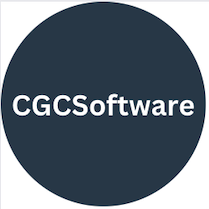I’m currently in the middle of job hunting for a new full-time contract, which is itself a full time job.
When you are between contracts you think ‘ah, I will spend the time doing things you meant to get done around the house’ but in fact you send all your time job hunting and these jobs around the house don’t get done.
The reasons that job hunting is like a full time job are, one you spend a good part of your day on the phone talking to agencies. Some of them want to discuss a role they have with you, to see if you are suitable. Some just want to see what you have done, what type of roles you are looking for incase something comes in and they know that you are able to do this role and they can put you forward for it. Sometimes they are just trying to find out who you use to work for or who you’ve been speaking to in order to see if they can also contact the client and see if they can get someone in there.
Generally agencies are ok to work with, you need them as much as they need you. So having a good relationship with the agencies is important in contracting.
After your CV has been sent to a client, they have reviewed it and you manage to get to the next stage. There are generally two types of next stage, either the ‘technical test’ or the ‘telephone’ interview. These two types of first stages in the interview processes are a lot more popular in the contracting industry now, than they were a few years ago. I think this is due to so many unqualified contractors getting through to a face to face interview. Whether this is due to them lieing on their CV (something I just done understand, if you haven’t got experience in something don’t lie about, either don’t appy for roles that require a certain skill or spend time building something open source to show you know it).
Anyway the technical test, this is usually when you are given a problem to solve and you need to write some code in order to provide a solution to the problem. Now agencies aways send you this test, and they usually say ‘it shouldn’t take longer than (insert small time period here)’. This is fine, but they are not developers and so they are probably not thinking about all the things that you are, how best to structure your code, how to show best practices, what approach will you take, are there issues like cross browser support you need to consider, is the problem to make something responsive? If so what screen sizes should you test against. If you have to access an API, what about checking for access to the API, what if no data comes back. There are a lot of things to consider when writing a solution to a technical test.
While doing this test you are probably still getting telephone calls from other agencies and you have to schedule the time to get the test done. This usually means, getting away from the family, finding some space on your own and focusing. While always remembering the famous last words of the agency ‘it should only take a few hours, can you get it done this evening’.
If you aren’t given a test, but instead get a telephone interview. This is so the client can ask you a few technical questions to make sure you know what you are talking about. And they can see/hear that you know something about a technology they use. Telephone interviews also have their problems. First of all if you have a bad connection (thanks Vodafone) it doesn’t sound to good if you keep going ‘can you repeat that please’. Second if you speak at the same time as the interviewer, you get this awkward pause where you both wait for the other to start talking again. So the flow of the conversation can get broken, but when there is a good flow to the conversation then the interview is (hopefully) going well. If you can clearly explain how a technology works or what work you have done and what problems you’ve solved then it shows you know what you are talking about.
With conversations with agencies, sending off applications to job sites, technical tests and telephone interviews job hunting is indeed a job in itself. You are basically becoming a salesman for your contracting services. So all you web developers out there who never wanted to be in sales, unfortunately you will be when job hunting.
